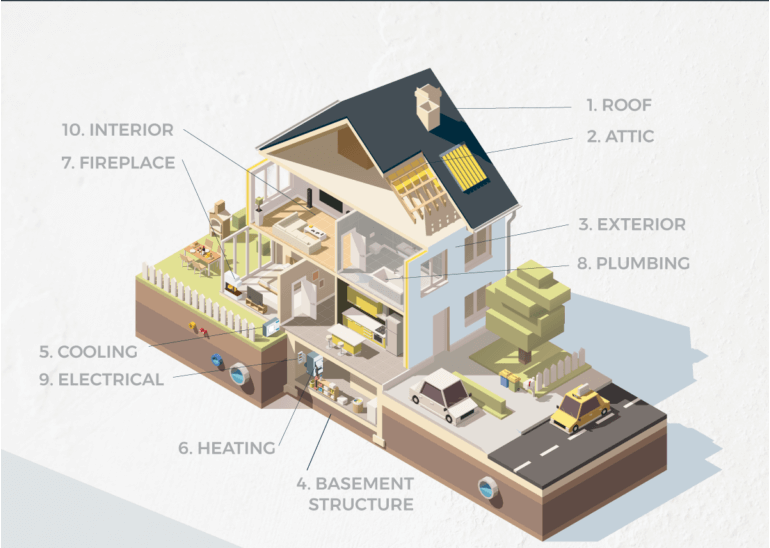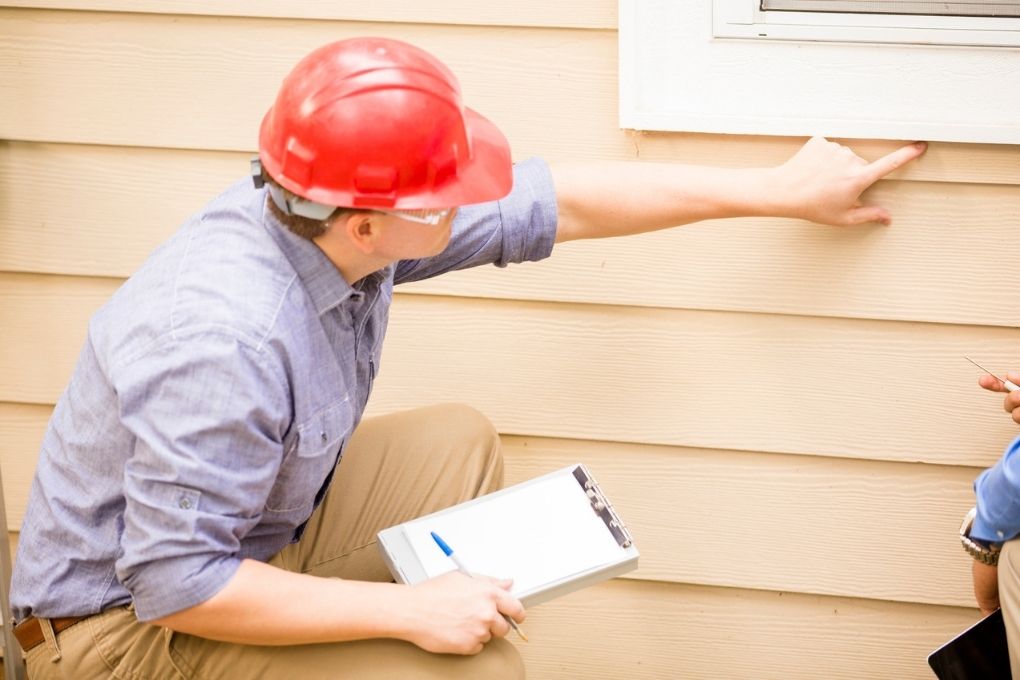What to Get Out Of Home Inspection: a Detailed List and Its Relevance
Recognizing what to get out of a home inspection is vital for both customers and vendors in the property market. A complete examination provides a comprehensive checklist that assesses vital components such as structural stability, major systems, and general building condition. This process not only discloses potential hidden problems but also plays a considerable function in discussing reasonable terms (Home Inspection Lockhart). As we check out the intricacies of this checklist and its wider ramifications, it ends up being clear that the stakes are high-- exactly how can you ensure you are well-prepared for what lies ahead?

Importance of Home Inspections
The importance of home evaluations can not be overemphasized, as they offer as an essential safeguard for both buyers and sellers in the realty market. For customers, a home evaluation gives an unbiased evaluation of the property's problem, disclosing possible issues that might not show up throughout an informal walkthrough. This procedure assists customers make educated decisions and work out repair services or price adjustments before closing, eventually safeguarding their investment.
On the other hand, sellers can take advantage of home assessments by addressing concerns proactively before listing their residential or commercial property. This can improve the home's bankability and possibly expedite the sales process. A pre-listing inspection can likewise impart self-confidence in possible buyers, as it demonstrates openness and a dedication to preserving the building.
Furthermore, home assessments add to the total safety and habitability of homes. By determining structural, electric, or plumbing concerns, they ensure that homes adhere to safety and security requirements and regulations. This not just shields the owners however also maintains the stability of the property market. In recap, home inspections are an essential element of property purchases, offering critical insights that cultivate trust fund and transparency among all parties involved.
Trick Parts of the Checklist
A detailed home inspection checklist includes numerous essential elements that make certain an extensive analysis of a residential or commercial property's problem. The initial component is the structural stability, which consists of the examination of the foundation, walls, and roofing for any kind of indicators of damage or wear and tear. Next off, the list addresses significant systems such as pipes, electric, and cooling and heating, examining their functionality and safety.
An additional critical area is the exterior of the home, which includes evaluating siding, windows, doors, and roof materials for wear and prospective leakages. The checklist likewise covers interior aspects, consisting of flooring, walls, ceilings, and insulation, to identify any kind of issues that might influence comfort or safety and security.
Additionally, the list commonly includes an assessment of appliances, ensuring they are in good functioning order. The assessment ought to evaluate outdoor rooms, consisting of driveways, decks, and patio areas, to evaluate their problem and security. Each of these elements plays a vital function in supplying a comprehensive understanding of the residential or commercial property, ultimately aiding potential purchasers in making notified choices concerning their investment.
Common Concerns Discovered
Typically, home examinations disclose a variety of issues that can range from small repair services to significant safety and security issues. One prevalent problem is the presence of water damage, typically coming from dripping roofings, plumbing failures, or not enough drain systems. Such damages can result in mold and mildew growth, which postures health and wellness threats and may need extensive removal.

One more typical finding involves electric systems. Obsolete wiring, overloaded circuits, or inappropriate grounding can create fire dangers and demand immediate interest. Additionally, problems with cooling and heating systems, such as inadequate maintenance or age-related inadequacies, can affect comfort and power costs.
Structural worries like fractured foundations or jeopardized framework are also frequently kept in mind. These concerns can lead to major repercussions otherwise addressed quickly. Moreover, pests such as rodents or termites might be uncovered, showing the potential for significant residential property damages.
Lastly, the condition of doors and windows frequently comes under examination. Poor seals can lead to power loss, while harmed frameworks or glass can impact safety and looks. Recognizing these typical issues during a home evaluation is important for notified decision-making and making sure the security and durability of the residential property.
Planning For the Assessment
Prep work is necessary for a successful home assessment, making certain that both vendors and purchasers can navigate the procedure with self-confidence. Begin by arranging the evaluation at a mutually convenient time, allowing for ample accessibility to the residential property. For sellers, it is suggested straight from the source to declutter and cleanse the home completely, as a clean environment can favorably affect the examiner's assessment.

For buyers, preparing requires compiling a checklist of details issues or areas of interest to discuss with the assessor. By taking these preparatory actions, both parties can establish the stage for a efficient and thorough home assessment experience.
Post-Inspection Actions
After the evaluation is complete, both sellers and buyers have to take certain actions to deal with the searchings for. For purchasers, the primary step is to very carefully evaluate the examination record, keeping in mind any kind of major problems that might affect their decision. This record works as a critical tool for arrangement. Buyers might request repairs or credit histories from the seller based on considerable problems, such as architectural issues or outdated systems.
Sellers, on the various other hand, need to evaluate the findings to determine which concerns they can resolve before wrapping up the sale. Repairing minor repairs can enhance the property's appeal and possibly lead to a higher price. Vendors might select to disclose issues to possible customers, promoting transparency and trust.
In instances where significant repairs are required, both celebrations may take advantage of getting quotes or quotes from qualified contractors. This allows for educated conversations relating to repair work responsibilities. Finally, it is crucial for both vendors and purchasers to maintain open lines of interaction throughout this procedure to ensure a smooth deal. By taking these post-inspection actions, both events can navigate the negotiation landscape with check my blog self-confidence and quality.
Final Thought
Home assessments act as an important component in the genuine estate purchase procedure, guaranteeing a thorough analysis of a residential property's condition. By adhering to an in-depth checklist, possible problems can be recognized, protecting the rate of interests of both customers and sellers. Attending to these problems not just enhances safety and security and habitability however likewise help in financial negotiations. Eventually, the relevance of home inspections can not be overstated, as they promote notified decision-making and add to a smoother actual estate experience.
For buyers, a home evaluation provides an unbiased analysis of the residential property's problem, exposing prospective problems that might not be noticeable throughout a laid-back walkthrough.Conversely, vendors can benefit from home assessments by resolving concerns proactively prior to noting their residential or commercial property (Home Inspection Lockhart).Commonly, home evaluations expose a selection of issues that can vary from minor repairs to considerable security worries. Determining these common issues during a home evaluation is important for notified decision-making and making certain the safety and security and longevity of the building
Preparation is crucial for a successful home evaluation, making certain that both vendors and buyers can browse the process with confidence.